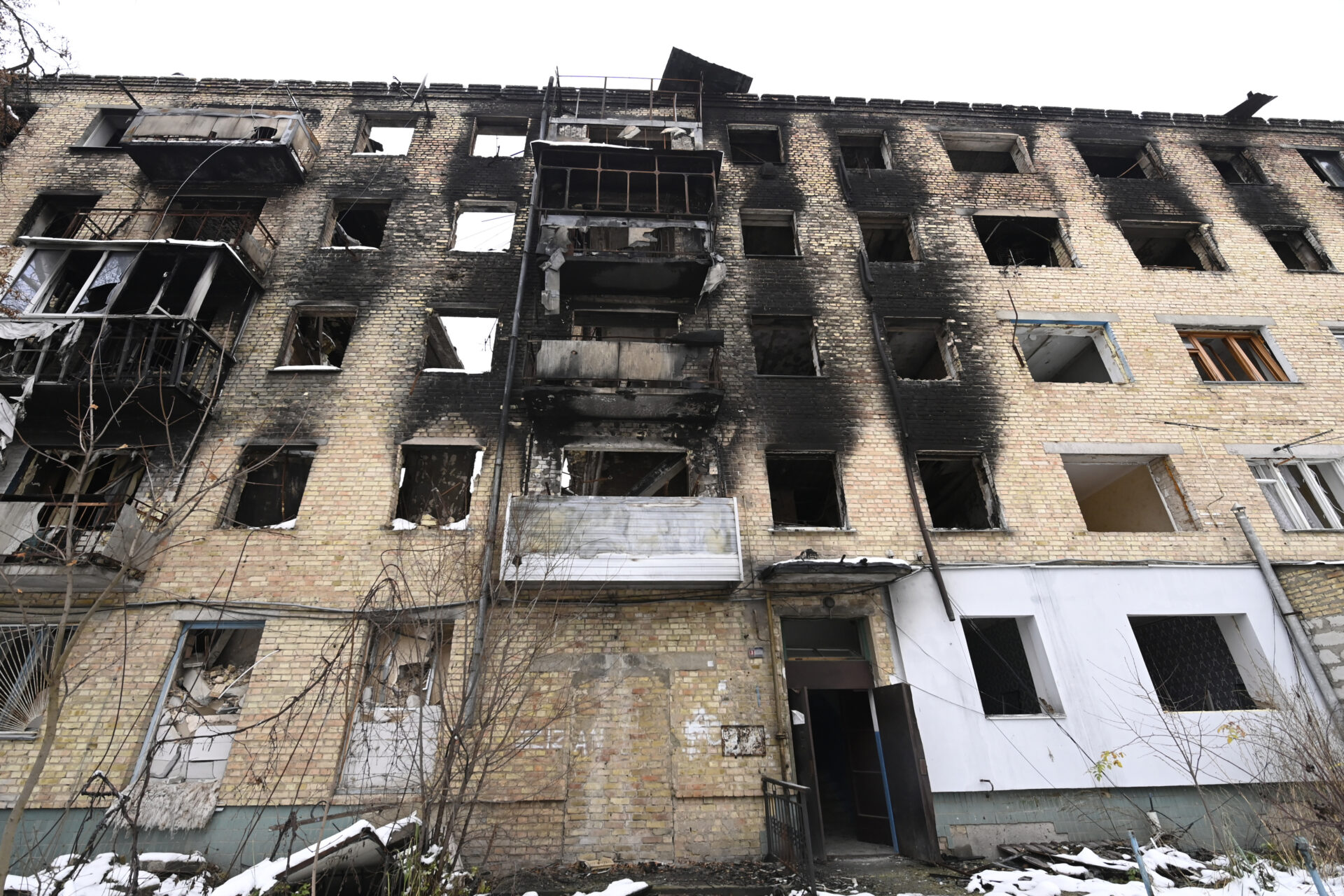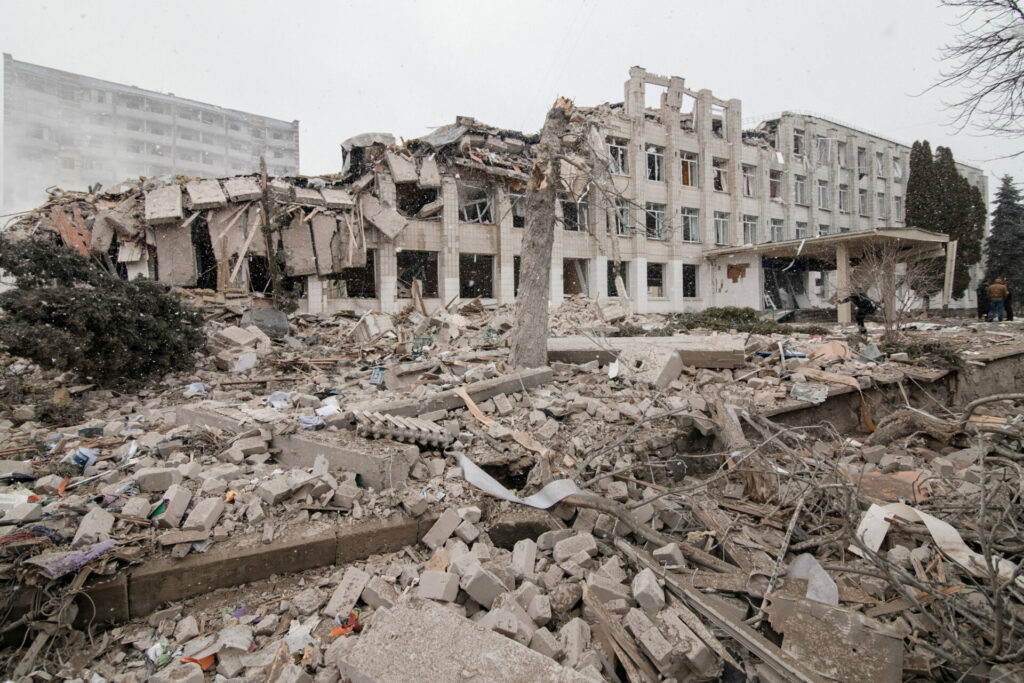A professor from the Vrije Universiteit Brussel (VUB) has been asked by a Ukrainian company to help recycle the concrete of buildings destroyed by Russian attacks.
VUB chemistry professor Hubert Rahier was asked for his assistance since he developed a method to recycle concrete, including much of the cement, so that the raw materials can be used to make high-quality structural concrete again.
"Concrete consists of aggregates such as river boulders or gravel, sand and a binder, which is usually cement," Rahier explained. "You can recover all those components: sand and gravel come loose from the concrete if you grind it mechanically in a special way."
This is done using a "smart crusher" designed by a Dutch company which mechanically reduces the concrete: "The machine not only breaks up the concrete, it also rubs off the finer parts but spares the gravel in the process. The crusher simultaneously loosens the sand fraction from the finer cement fraction."

A destroyed building in Borodianka in the Kyiv Oblast. Credit: Belga/ Philip Reynaers
The finer substance containing the hydrated and "finished" cement must then be reprocessed until it becomes usable again as a binder. To recycle the binder as well, the various fine fractions must first be separated until only the cement remains.
"To make that hydrated cement usable again as well and soak it out of its chemical bond until you have a reactive powder again, the cement powder is heated to a temperature between 500°c and 600°c in a high-power microwave oven," Rahier noted. The oven works with electricity generated by solar panels.
Related News
- Massive Russian bombardment leads to blackouts in Ukraine
- Russia’s invasion of Ukraine had little impact on Belgium-Russia trade
"We make new concrete with almost 100% recycled fractions. The CO2 gain you can make with our process is huge and, what's more, you don't need any additional raw materials that you have to get from nature," he concluded.
Rahier's recycling process recently came to the attention of a Ukrainian business leader who now wants to use it to recycle the concrete of bombed-out neighbourhoods in Ukraine. Rahier hopes to be operational by the end of the year.

